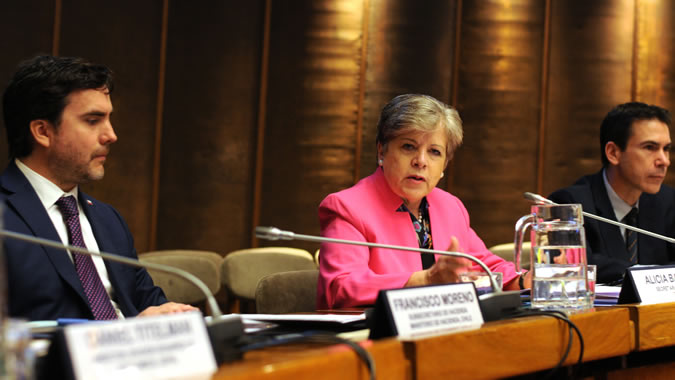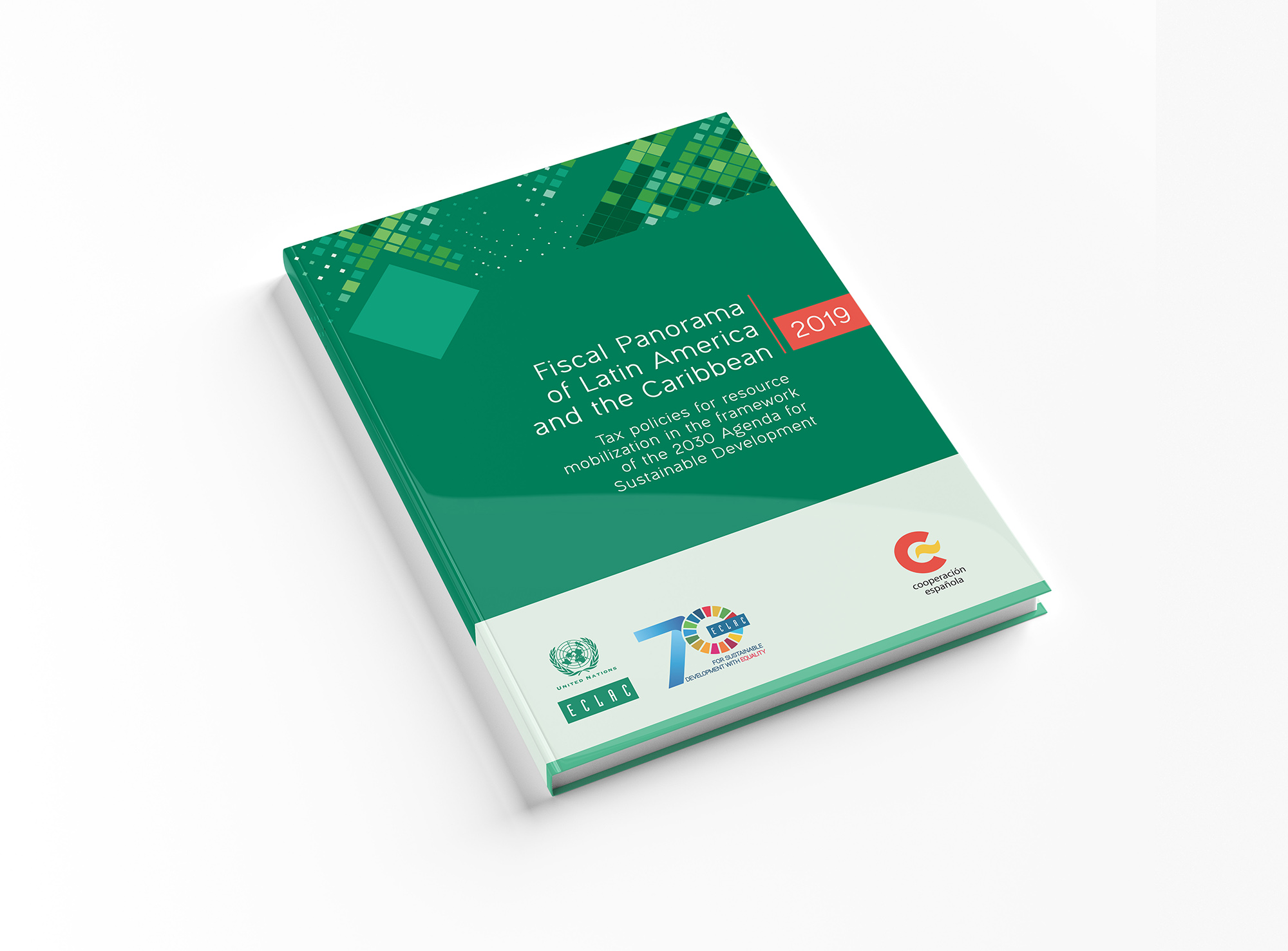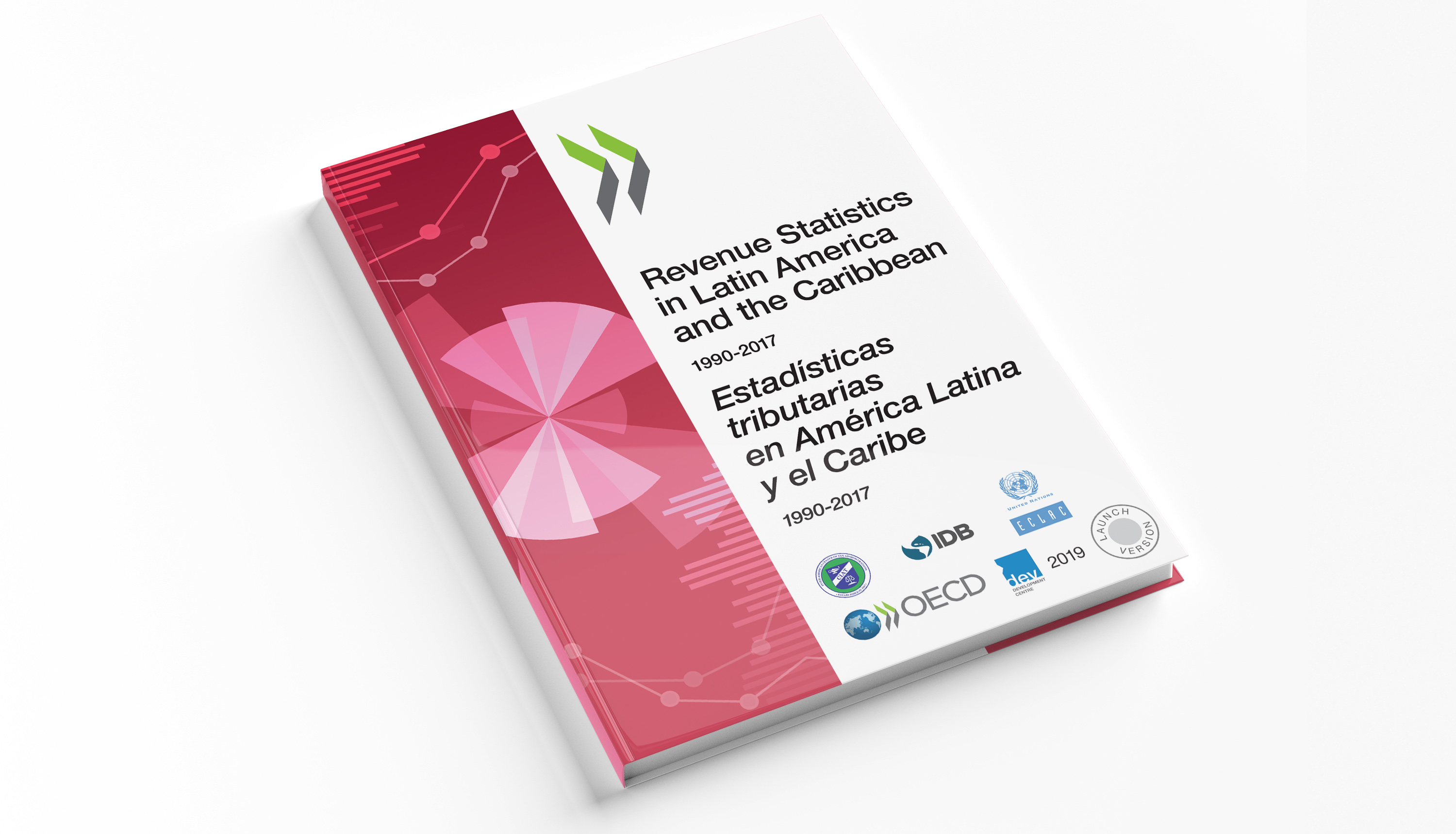Transition toward Sustainable and Inclusive Growth Will Require Changes in Latin America and the Caribbean’s Fiscal Policy
Work area(s)
Ministers and authorities from 10 countries in the region are meeting at ECLAC to dialogue about how to expand fiscal space and bolster financing of the 2030 Agenda.

Ministers and authorities from 10 countries in Latin America and the Caribbean as well as prominent experts from international bodies, academia, civil society and non-governmental organizations gathered at ECLAC’s headquarters for the XXXI Regional Seminar on Fiscal Policy, where they discussed the challenges and possibilities that countries’ fiscal policy will have to confront a complex external scenario currently and to support the transition toward more sustainable and inclusive economic growth, in line with the 2030 Agenda.
The event, which is the main point of reference for discussing public finances at a regional level, will take place through Tuesday, March 26. It is being organized by the Economic Commission for Latin America and the Caribbean (ECLAC), with support from the Inter-American Development Bank (IDB), the Organization for Economic Cooperation and Development (OECD), the World Bank and the International Monetary Fund (IMF), and with the sponsorship of the Spanish Agency for International Development Cooperation (AECID).
The seminar’s inauguration was presided by Alicia Bárcena, ECLAC’s Executive Secretary; Francisco Moreno Guzmán, Chile’s Undersecretary of Finance; and Enrique Ojeda Vila, the Ambassador of Spain in Chile. On its first day, there was also a panel of authorities that drew the participation of Francisco Moreno, Chile’s Undersecretary of Finance; Luis Arce, Bolivia’s Minister of Economy and Public Finance; Nelson Eduardo Fuentes, Finance Minister of El Salvador; Benigno López, Finance Minister of Paraguay; Mansueto Almeida, National Treasury Secretary at Brazil’s Economy Ministry; Luis Alberto Rodríguez, Technical Deputy Minister at Colombia’s Ministry of Finance and Public Credit; Manuel García Ponce, Deputy Minister of Finances and Prices of Cuba; Kildare Enríquez, Deputy Minister of Financial Administration at Guatemala’s Ministry of Public Finances; Michel Canta Terreros, Deputy Economy Minister of Peru; and Martín Zapata Sánchez, Deputy Minister of Tax Policies at the Dominican Republic’s Finance Ministry.
In her welcome remarks, Alicia Bárcena indicated that in the current challenging context – characterized by low global growth, trade tensions and financial volatility – the region is accommodating its fiscal policies to move ahead on implementing the 2030 Agenda’s Sustainable Development Goals (SDGs). She sustained that the transition toward sustainable and inclusive growth will necessitate changes, both in tax policy and public spending, on the part of central and local governments alike.
“Multilateralism and regional positions contribute to forging strategies to fight problems faced by the region, such as tax evasion and illicit flows,” she stated. “Achieving the 2030 Agenda in the region depends on the ability of countries to mobilize domestic resources. To that end, Latin America and the Caribbean must analyze options for strengthening collection and keeping its tax bases from eroding,” Bárcena added.
In his remarks, Chile’s Undersecretary of Finance, Francisco Moreno, indicated that these types of seminars allow for sharing experiences and gleaning lessons about what paths exist for countries to manage fiscal policies in a way that is responsible, efficient and oriented toward our citizens’ main needs.
“The current global scenario obligates us to implement public policies that promote economic growth, but with fiscal responsibility,” Moreno stated.
Meanwhile, the Ambassador of Spain in Chile, Enrique Ojeda Vila, stressed that the main objective of fiscal policy should be to forge and ensure sustained and sustainable economic growth in countries, creating employment and social well-being. This growth must correspond to a model based on competitiveness through innovation, technological advances, the modification of the workforce and with special support for and efforts by small- and medium-sized enterprises and self-employed businesspeople, he stated.
“It is critical that employment be of good quality, decent and with equal conditions for men and women. For solid growth, a socially balanced country is indispensable, because it benefits both domestic demand and productivity,” the Spanish diplomat indicated.
After the inaugural session of the seminar, ECLAC’s Executive Secretary presented the Fiscal Panorama of Latin America and the Caribbean 2019, a flagship publication by the organization that analyzes the main results of fiscal dynamics in the region’s countries, and which this year shows an improvement in the region’s fiscal position that nonetheless stands in contrast to an increase in gross public debt.
Bárcena indicated that ECLAC proposes five instruments for expanding fiscal space and advancing the 2030 Agenda: reducing tax evasion and illicit financial flows; promoting the adoption of taxes on the digital economy and public health levies; changing incentives through environmental taxes to move toward decarbonization of the economy and productive reconversion; reassessing tax expenditures; and strengthening personal income tax and taxes on real estate property.
Also, she stated that there are five options related to spending and public investment policies: protecting dual inclusion (labor and social) based on social spending; bolstering and reorienting public investment to stimulate the use of innovative technologies (energy, mobility, communications and bioeconomy) with natural resources; moving toward budgetary systems that incentivize priority public investment through pro-investment accounting frameworks; establishing public-private agreements for infrastructure and renewable energy; and redesigning fiscal incentives for industrial policies.
“No country can do any of this on its own. Regional multilateral space is necessary for fiscal analysis and coordination in areas such as the reduction of tax evasion and illicit flows, the revision of and convergence in the use of fiscal incentives for investment, and to forge joint positions aimed at reducing global asymmetries and increasing dialogue with transnational companies,” Alicia Bárcena emphasized.
During the XXXI Regional Seminar on Fiscal Policy, ECLAC – along with the OECD, the IDB and the Center of Tax Administrations (CIAT) – will also present the report Revenue Statistics in Latin America and the Caribbean in 2019, which compiles figures and homogenous data on the tax revenue of 25 countries in the region, and which has become a valuable “regional public good,” since it is a tangible result of the debates and initiatives arising from previous sessions of this seminar.
Related content

XXXI Seminario Regional de Política Fiscal
El XXXI Seminario Regional de Política Fiscal es organizado por la Secretaría Ejecutiva de la Comisión Económica para América Latina y el Caribe (CEPAL), a través de la División de Desarrollo…

ECLAC Reiterates the Importance of Reducing the High Level of Tax Evasion and Illicit Financial Flows to Increase the Region’s Fiscal Space
In its annual publication “Fiscal Panorama of Latin America and the Caribbean 2019,” the organization highlights the role of tax policy in fulfilling the 2030 Agenda for Sustainable Development.

Panorama Fiscal de América Latina y el Caribe 2019: Los desafíos de las políticas públicas en el marco de la Agenda 2030
Presentación de Alicia Bárcena, Secretaria Ejecutiva de la CEPAL, en el XXXI Seminario Regional de Política Fiscal.

Latin America and the Caribbean: Public revenues rebound in 2017 after dip in 2016
Report "Revenue Statistics in Latin America and the Caribbean 2019" was launched today at ECLAC during the XXXI Regional Seminar on Fiscal Policy.
Related link(s)
Country(ies)
- Latin America and the Caribbean
Related project(s)
Contact
Public Information Unit
- prensa@cepal.org
- (56 2) 2210 2040
